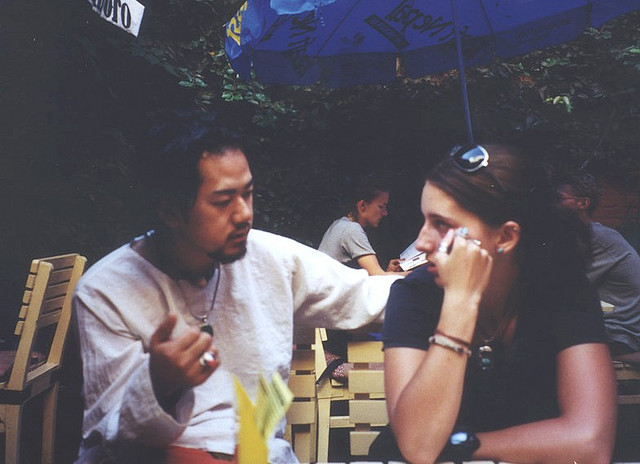My four-year old daughter and I were driving around town one day when she told me we were on the freeway.
I explained that we weren’t actually on a freeway. She insisted—with complete confidence—that we were indeed on the freeway.
I continued to argue with her for a few more rounds. It went something like this:
Me: “No honey, we’re not on the freeway. That is the freeway. We are on a road.”
Her: “Noooo, this is the freeway Mama!”
At that point, I realized I was actually on the verge of a heated debate over an absolutely meaningless technicality—with my four-year old child! What on Earth was I doing arguing with a four-year old over such an insignificant detail?!
I stopped myself, took a deep breath and acknowledged that I was engaged in a losing battle. Yes, she was wrong. I could have persisted in pointing out the error to her, all the while becoming increasingly frustrated and annoyed. But what’s the benefit in that?
Instead, I ended the conversation, saying, “Maybe you’re right and this is the freeway. Thanks for telling me honey.” Her response, said with a big smile on her face: “You’re welcome, Mama.”
We both were happy: me to move on from the conversation and her to hear me say she was right. Ahhh, much better!
I’d like to note here that it’s not the best idea to always tell your children that they’re right. If you did, you would be robbing them of the opportunity to develop their own belief systems and learn that they’re worthy and whole regardless of whether they agree with you or anyone else. In this example, my daughter wasn’t actually engaging me in a battle of wills; she was trying to be helpful. I chose to acknowledge her assistance rather than highlight her error. I think it comes down to understanding your child’s motivations and, as always, choosing your battles as a parent.
That story ended peacefully. But it wasn’t always sunshine and roses for me in the happy-versus-right department.
Years ago, I used to argue and argue…and argue with anyone who would listen. I thought I was displaying how intelligent, aware and knowledgeable I was. I thought arguing and standing up for myself meant I was strong.
But I see now that I was really trying to establish my own worth. I was trying to prove to myself and everyone else that I mattered. That I had valuable thoughts and opinions. I would have, of course, debated with anyone who tried to convince me of this fact back then. (What irony, right?)
As I’ve moved along my personal spiritual journey, I’ve learned that always trying to be right comes with a lot of stress. It takes loads of energy to continually engage people who disagree with you and then try to convert them to your point of view.
And, honestly, few people changed their minds just because I laid out a perfectly reasonable case for them to do so. So what was the point of expending all that energy anyway? The only guaranteed outcome from these conversations was that I endured tension and stress, both between me and the other person and within my body.
The reality was that by regularly engaging in conflict with other people and their opinions and ideas, I was actually giving up my own personal power.
I can only ever control my own thoughts and actions. By choosing to engage in potentially contentious conversations with others, I was operating under a false belief that I could change their thoughts and actions.
Of course, I still disagree with people all the time. But I have learned that I can express my opinions (or even take action) without engaging in an actual argument.
Deciding when to draw a line in the sand and when to let an issue go can be a difficult choice, and we must each make that determination for ourselves. But it’s important to recognize that choosing to be happy instead of right is not the same thing as being a pushover or simply appeasing others.
What can you do instead of argue? How can you choose happiness in the face of people espousing their own opinions that you deeply disagree with? Here are some phrases you can use when an argument is bubbling to the surface:
>>> That’s not how I see it.
>>> Let’s agree to disagree.
>>> Thank you for sharing that [opinion, information, tip, advice, fact] with me.
>>> I see where you’re coming from. I have a different perspective.
Whether you use these phrases or your own favorites, you’re making it clear that you’re not just rolling over in defeat; you’re actively choosing not to engage.
Please remember that when you consciously remove yourself from a disagreement, do so with love and kindness. If you speak from a place of disdain, frustration or judgment, you could easily be adding fuel to the fire. By using love as the backdrop for these statements, you’ll instead be putting out the fire while maintaining your own peace and happiness.
Relephant:
12 Ways to Stop Arguing & Start Communicating With the Man (or Woman) You Love.
Author: Dina Overland
Editor: Catherine Monkman
Photo: Heather Thorkelson/Flickr












Read 9 comments and reply